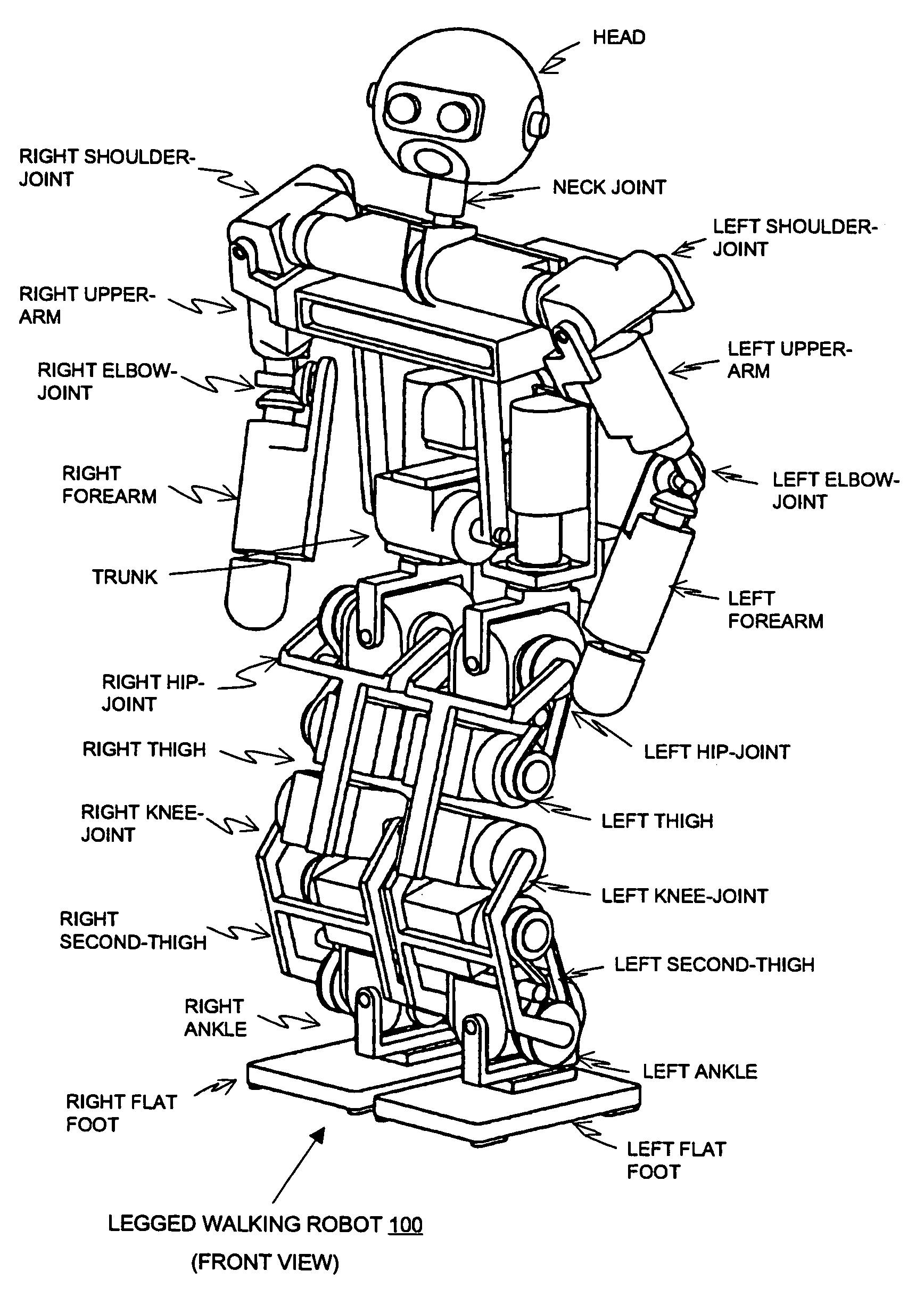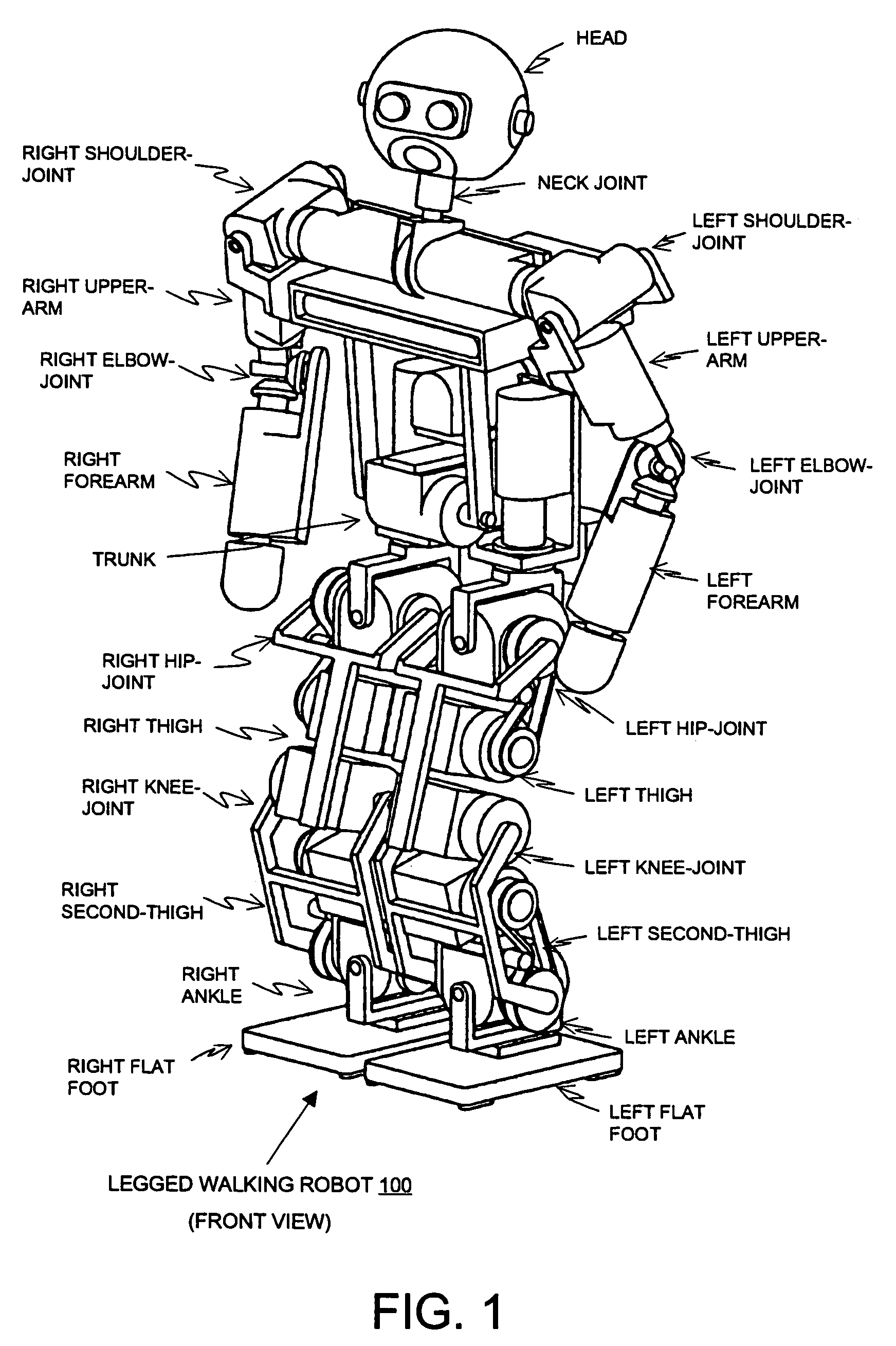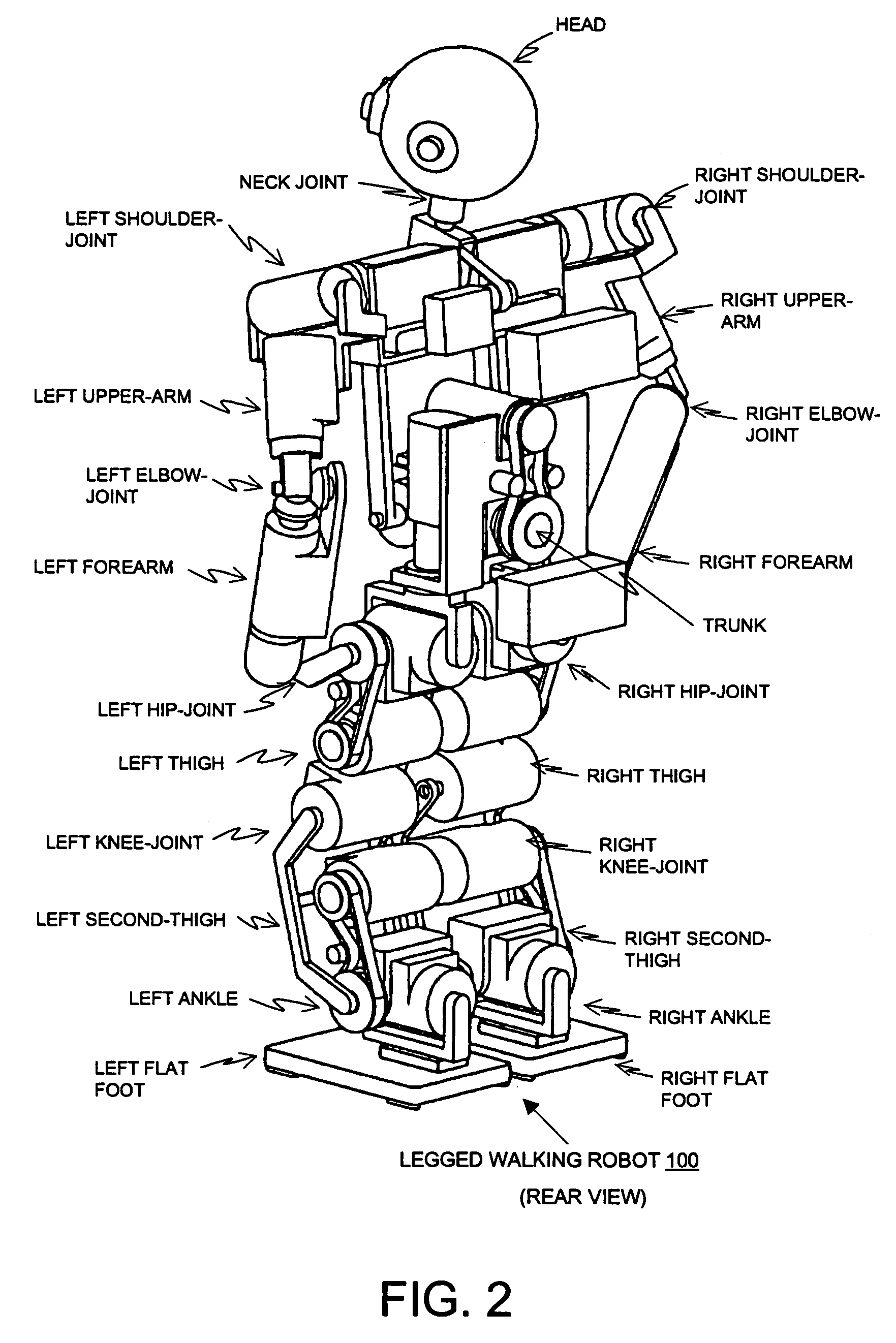Legged walking robot and motion control method therefor
a robot and leg-moving technology, applied in the field of real-life robots, can solve the problems of increasing the difficulty of leg-moving robots controlling an attitude and a walk, and many obstacles, and achieve the effect of excellent motion control and stable and accurate leg-moving operation
- Summary
- Abstract
- Description
- Claims
- Application Information
AI Technical Summary
Benefits of technology
Problems solved by technology
Method used
Image
Examples
Embodiment Construction
[0063]An embodiment of the present invention will be described in detail with reference to the accompanying drawings.
[0064]FIGS. 1 and 2 are respectively perspective front and rear views of a legged walking robot 100 according to an embodiment of the present invention. Also, FIG. 3 schematically illustrates the joint degrees-of-freedom structure which the legged walking robot 100 is provided with.
[0065]As shown in FIG. 3, the legged walking robot 100 has a structure of a plurality of limbs formed of upper limbs including two arms and a head 1, lower limbs including two legs for achieving a locomotive motion, and a trunk connecting the upper limbs and the lower limbs.
[0066]A neck joint for supporting the head 1 has 3 degrees of freedom: i.e., a neck-joint yaw-axis 2, a neck-joint pitch-axis 3, and a neck-joint roll-axis 4.
[0067]Each arm has a shoulder-joint pitch-axis 8, a shoulder-joint roll-axis 9, an upper-arm yaw-axis 10, an elbow-joint pitch-axis 11, a forearm yaw-axis 12, a wri...
PUM
 Login to View More
Login to View More Abstract
Description
Claims
Application Information
 Login to View More
Login to View More - R&D
- Intellectual Property
- Life Sciences
- Materials
- Tech Scout
- Unparalleled Data Quality
- Higher Quality Content
- 60% Fewer Hallucinations
Browse by: Latest US Patents, China's latest patents, Technical Efficacy Thesaurus, Application Domain, Technology Topic, Popular Technical Reports.
© 2025 PatSnap. All rights reserved.Legal|Privacy policy|Modern Slavery Act Transparency Statement|Sitemap|About US| Contact US: help@patsnap.com



